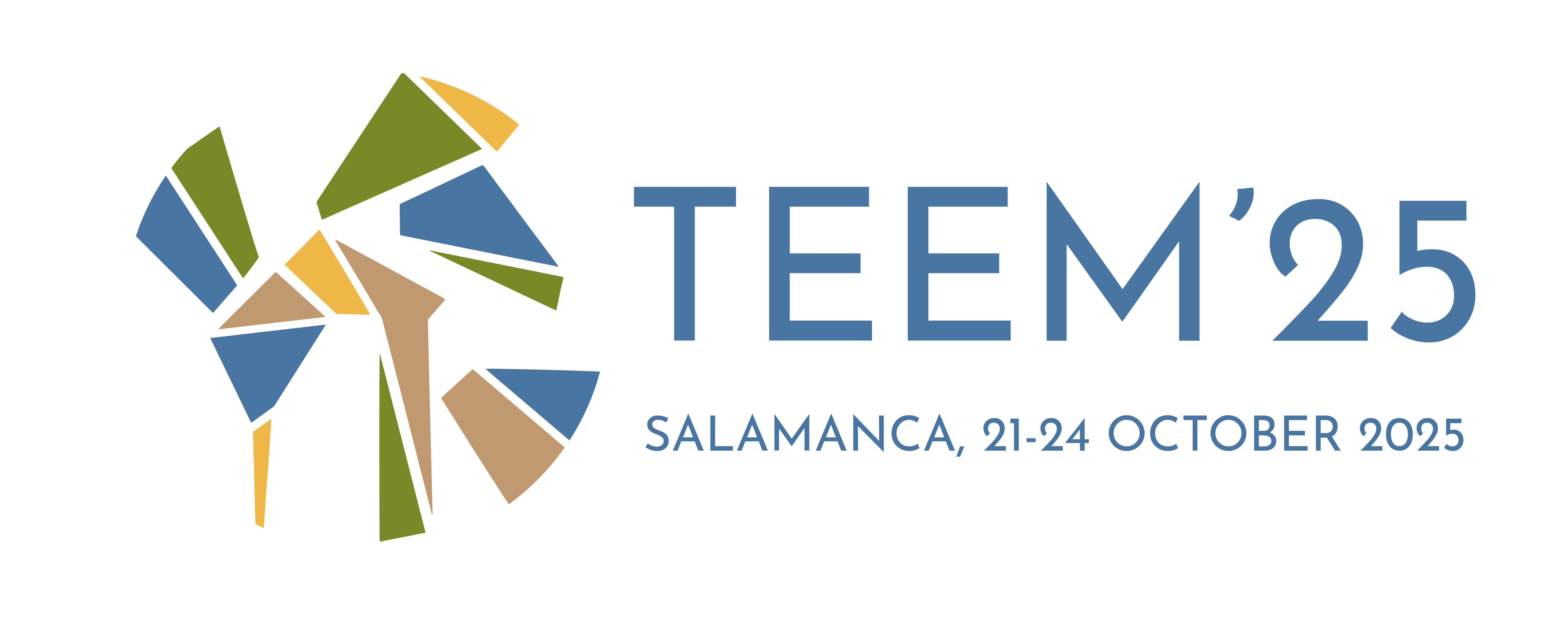“Enhancing Student Learning in Online and Face-to-Face Contexts through Multimodal Learning Analytics, Sensors and Artificial Intelligence“
Ruth Cobos, Universidad Autónoma de Madrid

The integration of sensors, machine learning and generative AI with Multimodal Learning Analytics (MMLA) enables the extraction of rich, data-driven insights to improve educational practices.
By analyzing students’ interactions, behaviors, and performance across both online and face-to-face learning environments, this approach supports the generation of personalized feedback aimed at enhancing student learning. Additionally, it provides instructors with valuable tools to monitor student progress more effectively, allowing for timely interventions and more informed instructional decisions.
Building on this foundation, this keynote will present several MMLA approaches that illustrate the potential of leveraging multimodal data to enhance feedback strategies and better support both students and instructors across diverse learning contexts.
Ruth Cobos is Associate Professor in the Department of Computer Science at Universidad Autónoma de Madrid (UAM). She received her M.Sc. and Ph.D. degrees in Computer Engineering from UAM. She has been member of the research group GHIA (Grupo de Herramientas Interactivas Avanzadas) at UAM since 1999 and member of the research group contic (Grupo de Excelencia Cognición y Contexto: el aprendizaje colaborativo mediado por ordenador) at Universitat de Lleida (UdL) since 2005.
She is the Principal Investigator representing UAM for the Spanish Network of Learning Analytics – SNOLA (https://snola.es/). She has participated in more than twelve R&D projects. During 2008 and 2009, she was the Principal Investigator of a project funded by the Spanish Agency for International Development Cooperation (AECID), which involved researchers from UAM, UdL, and two universities in Colombia. She was also the Principal Investigator representing UAM for the eMadrid Excellence Research Network.
As the Rector’s Delegate for Educational Technologies (2014–2016), she led the technical office at UAM responsible for the development and creation of UAM MOOCs on edX. UAM has been a member of the edX consortium since 2014. Currently, she coordinates the MOOC instructor team for the course titled “Introducción al desarrollo de aplicaciones web.” In addition, she is a member of the instructor team for several nanoMOOCs created by SNOLA on Learning Analytics (https://nanomoocs.com/).
She received the Meritorious Service Award 2022 (e-Madrid Excellence Network) for outstanding contribution to the development conference of EDUCON – IEEE Global Engineering Education.
Currently, her main areas of research include Learning Analytics, Multimodal Learning Analytics, Online Learning, Artificial Intelligence in Education, Machine Learning and Educational Technologies.
“AI impact on traditional and non-traditional instructional laboratories“
Gustavo R. Alves, Polytechnic of Porto – School of Engineering

In Science, Technology, Engineering and Maths (STEM) education, lab-based classes play an important role by allowing students to acquire experimental skills, as part of their training. This vital role is evidenced by a seminal paper authored by Feisel & Rosa (2005), which proposes a list of 13 fundamental objectives of instructional laboratories in undergraduate engineering degrees. This same paper also addresses the potential of combining different lab environments, like remote and virtual labs. The trend to expand the boundaries of traditional – hands-on – labs to the cyberspace, creating a new type of non-traditional – virtual and remote – labs has gained momentum with the COVID-19 pandemic. Nevertheless, this trend has roots that can be traced back to almost 30 years ago, as acknowledged by Froyd, Wankat & Smith (2012).
More recently, Artificial Intelligence (AI) has been impacting the entire educational landscape, with a particular emphasis on generative AI tools. This trend is clearly affecting enegineering education, although examples linked to the acquisition of experimental skills, specially through non-traditional labs, are still scarce. Noticeably, a recent example already showcases antiplagiarism and AI immunity features (Toh and Buchanan, 2025), which suggests AI being seem as a foe rather than as a friend.
The keynote will address this thematic, i.e., is AI a friend or a foe regarding traditional and non-traditional laboratories, or can this condition be controlled by a proper lab and/or instructional design?
Gustavo R. Alves graduated in 1991 and obtained a PhD in Computers and Electrical Engineering in 1999, from the University of Porto, Portugal. He is affiliated with the Polytechnic of Porto – School of Engineering, since 1994, where he holds a position as Associate Professor, with Habilitation. He currently serves as the Head of the Centre for Innovation in Engineering and Industrial Technology (CIETI), an R&D unit recognised by the Portuguese National Agency for Science & Technology.
He has authored or co-authored 280+ publications, including book chapters, conference and journal papers with a referee process, and also co-edited 3 books. Together with Javier García-Zubía and Unai Hernández-Jayo, from the University of Deusto, Spain, he authored the “VISIR handbook” (2024), which demonstrates many of the real (remote) experiments that can be achieved and replicated with this laboratory.
His research interests include engineering education and remote laboratories. He was involved in 20+ national & international research projects. He served as general chair of the REV2014, TEEM2015, EDUCON2020, and TAEE2020 conference editions. He also served as Associated Editor for IEEE-TLT and IEEE-RITA. Dr. Alves is Vice-President of IAOE, an IEEE senior member, and a member of IGIP, the Portuguese Order of Engineers (OE), and the Portuguese Society for Engineering Education (SPEE), where he served as President (2018-2020).
